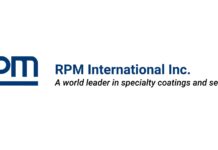In today’s dynamic business landscape, entrepreneurs face the critical challenge of establishing a solid foundation while navigating complex market dynamics and operational requirements.
The key to launching a successful venture lies in the strategic integration of market research, brand development, legal compliance, and risk management strategies that work cohesively to create a sustainable business model.
Creating a comprehensive business framework requires careful consideration of various elements, from understanding target demographics and competitor analysis to implementing efficient processes and maintaining strong financial controls, all while building a distinctive brand identity that resonates with potential customers.
Understanding Your Market and Startup Costs
Market research forms the backbone of any successful business venture, helping entrepreneurs identify their target audience and confirm market demand.
A detailed analysis of customer needs, preferences, and buying patterns enables companies to position their offerings effectively while minimizing potential risks.
Financial planning requires careful consideration of various startup expenses. While traditional costs like rent and employee salaries are obvious, modern businesses should also factor in technology investments.
For example, companies aiming to reduce operational costs may benefit from planning ahead for realistic solar panel cost expectations, as adopting renewable energy can lead to substantial long-term savings and increased sustainability.
Key Elements for Market Analysis and Startup Expenses
Efficient business planning can lead to substantial time and resource savings. Companies that implement streamlined processes and automated systems have seen remarkable improvements – 2.3 million hours saved through reduced administrative burdens.
- Consumer demographics and behavior patterns
- Competitor analysis and market saturation levels
- Infrastructure requirements and equipment costs
- Marketing and advertising budget allocation
- Emergency fund and contingency planning
This optimization allows entrepreneurs to focus on core business activities and growth strategies.
Building Brand Identity and Reputation
A well-crafted business plan serves as the foundation for establishing a strong brand presence in your market. Creating clear brand guidelines helps shape how customers perceive and interact with your business.
Your brand identity goes beyond visual elements – it encompasses your company’s values, mission, and the unique value you bring to customers.
Physical branding elements play a crucial role in reinforcing your professional image. Installing custom metal backlit signs can create lasting impressions on potential clients. These visual cues, combined with consistent messaging across all platforms, help build brand recognition and strengthen market position.
To build a strong and recognizable brand, start by defining your unique selling proposition and core values. Create consistent visual elements across all touchpoints to reinforce your identity, and develop a clear brand voice with messaging guidelines that reflect your mission and values.
Establish high-quality standards for your products and services to foster trust and credibility. The importance of reputation management cannot be understated – 88% of business leaders consider it essential for competitive advantage. A strong brand reputation stems from delivering exceptional service consistently.
Focus on building trust through transparent communication and maintaining high standards in every business interaction.
Selecting Legal Structure and Ensuring Compliance
The selection of a legal structure for your business shapes fundamental aspects of operations, from tax obligations to personal liability protection. Each business entity type offers distinct advantages and limitations that can significantly impact your company’s future growth potential and financial responsibilities.
Understanding these various structures helps create a solid foundation for your venture. A carefully chosen business format aligns with your specific goals while providing appropriate risk management and tax benefits.
To choose the right legal structure for your business, consider the unique advantages and limitations of the following common entity types:
- Limited Liability Companies (LLCs) blend operational flexibility with personal asset protection.
- Corporations provide the highest level of liability protection but face stricter regulatory requirements.
- Sole proprietorships offer simplicity but don’t separate personal and business assets.
- Partnerships allow shared ownership and management responsibilities.
Professional guidance proves invaluable during the formation process. Working with qualified legal and financial advisors ensures proper documentation filing and compliance with state and federal regulations.
These experts can identify potential issues before they become problems, saving time and resources while reducing legal exposure.
Minimizing Risks and Enhancing Longevity
Smart risk management practices and strategic planning form the backbone of sustainable business operations. Business owners who take a proactive approach to identifying and addressing potential challenges create stronger foundations for their ventures.
The statistics show encouraging news – only 17 percent of new full-service independent restaurants close in their first year.
Implementing comprehensive risk management strategies requires attention to several key areas. Here’s what successful businesses focus on:
- Regular financial health assessments and cash flow monitoring
- Updated compliance documentation and regulatory adherence
- Continuous market analysis and competitor tracking
- Employee training and development programs
- Crisis management and contingency planning
Effective risk mitigation starts with understanding your business’s unique vulnerabilities. Creating detailed action plans for various scenarios helps maintain operational stability during unexpected challenges.
By staying alert to market shifts and maintaining strong financial controls, businesses can adapt quickly to changing conditions while preserving their core strengths. Regular reviews of insurance coverage, legal requirements, and industry standards ensure your business stays protected as it grows.
Strategic Business Success
Establishing a successful business venture requires a comprehensive understanding of market dynamics, financial planning, and risk management strategies that extend beyond basic operational considerations.
Through careful analysis of target demographics, implementation of streamlined processes, and adoption of modern technologies, entrepreneurs can create a solid foundation while optimizing resource allocation.
The key to sustained growth lies in building a strong brand identity, selecting appropriate legal structures, and maintaining robust risk management practices that protect both the business and its stakeholders.

































